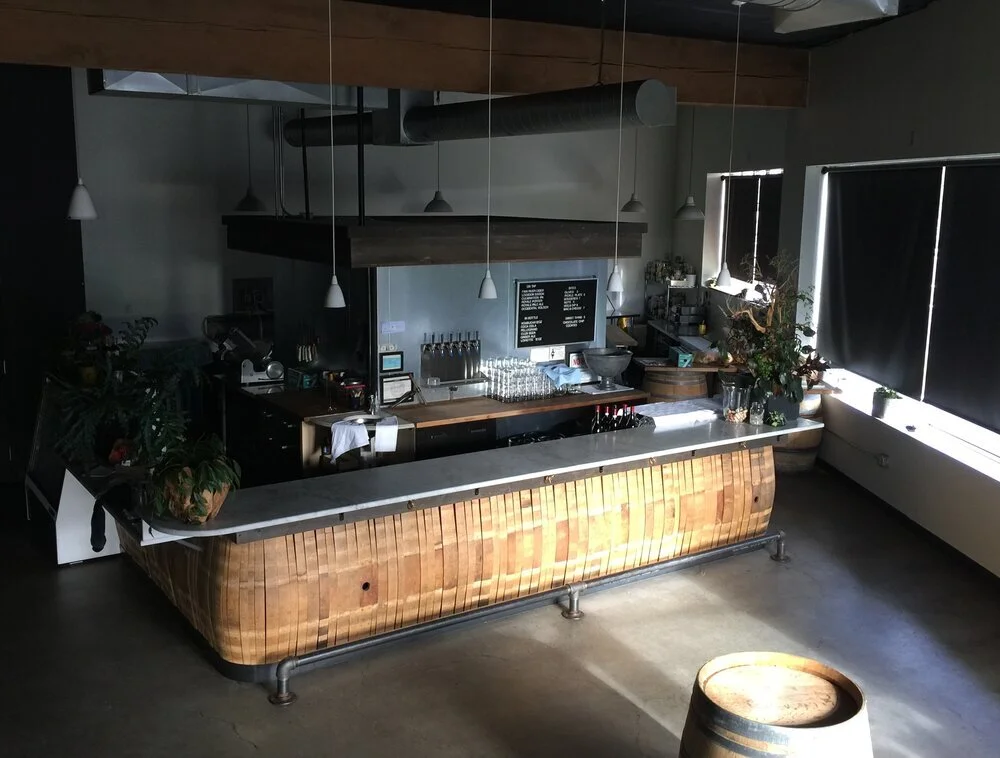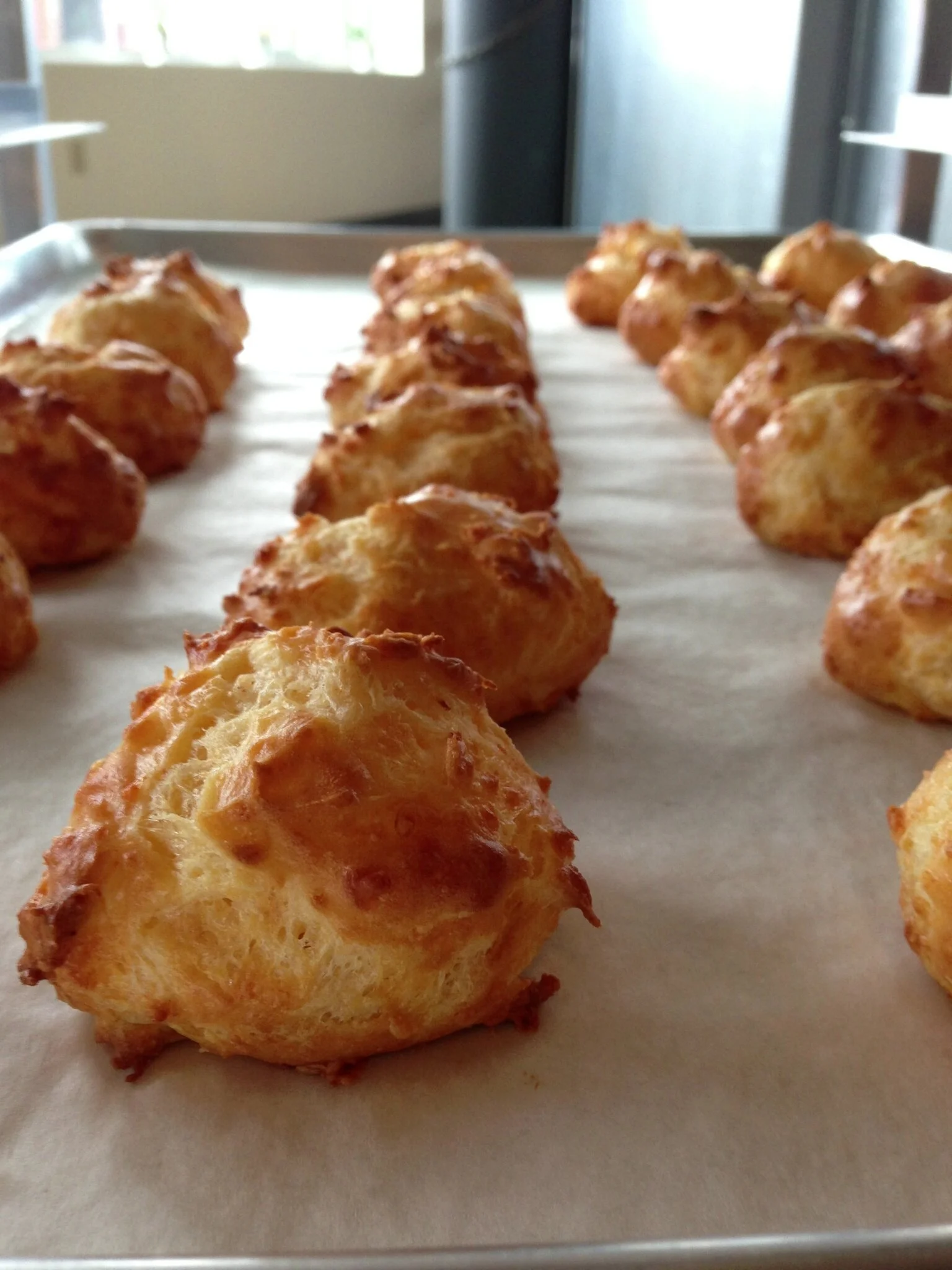A Picture in 1000 Words (May)
THANK YOU, GABRIELLE HAMILTON, FOR HELPING ME GET OVER THE WORST BOYFRIEND I EVER HAD–MY RESTAURANT
I loved my restaurant.
Love is a wonderful thing to feel for a restaurant, or any business you pour yourself into, and I was reminded of that delicious love when I read Gabrielle Hamilton's recent essay, The Kitchen is Closed. I swooned through her account of the sounds of a typical service–the din of communal chatter, banter between the staff, and the rough, rhythmic slosh of a cocktail shaker.
Her essay is not a feel-good piece, even with all of its beauty and romance, and yet I felt markedly better after reading it. Her fondness and fury about the state of the restaurant industry were the salves I didn't know I needed for a wound I've tried to heal since I closed my restaurant three years ago.
Entering the food business at thirty, I was considered a late bloomer. I spent my twenties progressing from administrative assistant to a project manager, industry hopping from staffing to biomedical consulting, and eventually landing in financial services. The pay was good, the hours were reasonable, and I was bored; I wanted to do something interesting, something that excited me. When a friend mentioned an internship at a place called the Artisanal Cheese Center, I fondly recalled my part-time job for a catering company in high school and applied.
They took me on (without pay), and my journey began. My willingness to work hard didn't make up for my lack of experience. I knew nothing of sanitation practices, inventory management, or knife skills; I wore my naïveté like a target on the back of the starchy bright white coat they issued to me on my first day. From the very beginning, I was chastised for being soft, for my tendency to follow the rules, and for my belief that an unchecked temper was not the only way to coax a great performance from a team.
Nine years and seven food jobs later, I was seeking an antidote to the bravado of the food business–the willingness verging on eagerness to work hard for low pay–often in toxic environments–that is worn like a badge of honor. When I didn't find a place that offered a reprieve from that kind of one-upmanship, I decided that I would create one.
It's hard to relate to the hubristic me who believed she had what it took to envision and build a different kind of restaurant. I barely knew enough to run a restaurant, let alone one that aspired to do better by all of the people involved in it.
I am not the first or the only restaurant owner to prioritize the care of staff and purveyors, many do, but anytime I openly discussed how I worked with my staff or the financial realities of my business, I felt distinctly alone. I'll never forget the flicker of disdain on my most seasoned sous-chef's face when I reprimanded them for their attitude in the kitchen and explained that while the food mattered to me, very much, the people mattered to me more–by a lot. It was that kind of soft, people-first thinking, I assumed, that destined me to struggle and ultimately fail in the restaurant business.
It was so easy to dismiss my fears that running a profitable restaurant was impossible and my head-scratching about how it could possibly be working for other people as the complaints of a poor sport who couldn't keep up. My restaurant was like a bad boyfriend–a gorgeous, devil-may-care charmer who was gaslighting me at every turn.
Even as I was coming apart at the seams–sleepless nights, health issues, going broke–I doubled down on my love for the restaurant. I vividly remember the day I started crying during lunch with a friend, telling her how hard it was, how tired I was, and how it just wasn't going that well. Her face softened, and she gently asked me if I wanted to quit, to close the restaurant. I can only imagine the confusion on my face. My tears halted, and I replied with exasperation, "No. Of course not."
When Hamilton called out the blatant lies restaurant owners tell one another about business being on the up and up, the lies that the pandemic made it impossible to perpetuate, there was a flash of vindication followed by sadness. I remembered how quick I was to beat the crap out of myself for not being social or clever or fun enough for the restaurant, and I wondered how many others had done that too.
People have this idea that restaurant owners are exhausted because they work all the time. This is true, but it lacks precision; the exhaustion of running a restaurant comes from being the person tasked with continually breathing life into its possibility, even when it is beating you to a pulp. This happens whether you're succeeding or failing.
At my restaurant, we had just enough great days to make me always think that we were on the cusp of turning a corner, like that guy who says just the right thing to quell your mounting doubts about his long term potential. We had busy nights, regulars, dishes that came together and made people rave and ask for recipes, just never enough of them.
When I finally closed the business, I still believed that the restaurant industry was fine, great even, it just wasn't the right fit for me. I wasn't savvy or thrifty enough to succeed in a business with such narrow margins. I was too lazy for the relentless hustle in and out of the kitchen, and too tender-hearted for such a cutthroat environment.
Reading Hamilton's essay, I allowed myself to consider the possibility that the restaurant wasn't just a bad boyfriend for me, that perhaps the entire industry was a dirtbag with commitment issues in need of serious self-reflection and reform.
"When we are sorting through the restaurant obituaries, will we know for sure it was not because the weary veteran chef decided, as I have oven been tempted myself in these weeks, to quietly walk out the open back door of a building that has been burning for a long time."
It never occurred to me that the building was on fire; I was too busy trying to figure out how I could become someone who could take the heat. The longer I ran my restaurant, the more intensely I committed to making it an environment where everyone felt safe, seen, and heard. Looking back, I wonder if my quest to create a place like that was because I desperately needed it for myself.
I had a dream a few months before I closed the restaurant that I ran into an old friend who told me she had lost sixty pounds. When I asked her how she did it, she replied, "I just put it down." In the three and a half years since I closed my restaurant, that's what I have been trying to do with my shame about not being able to make it work.
It's a relief to put it down finally, not because it means that I can forget my restaurant–quite the contrary–it means I get to love it again.
If you don't have an NYT subscription, or you hate reading stuff online- you can listen to someone read Hamilton's essay.



